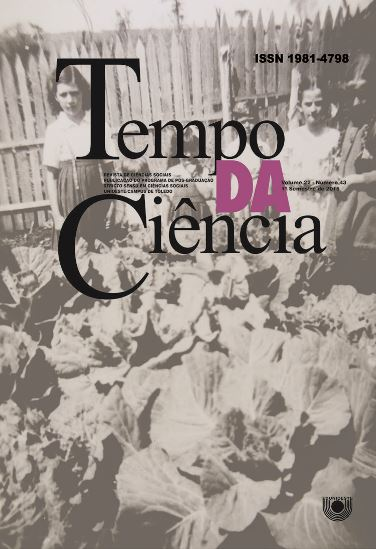POLÍTICAS DE IGUALDADE RACIAL: POSSIBILIDADES E LIMITES PARA SUA EFETIVAÇÃO EM NÍVEL LOCAL – O CASO DE PORTO ALEGRE
DOI:
https://doi.org/10.48075/rtc.v22i43.12633Palabras clave:
Políticas públicas, Igualdade racial, Relações raciais, Poder local.Resumen
This paper aims to expose the production framework and implementation of racial equality policies at the local level. Analyzing the specific case of the city of Porto Alegre and the municipal body responsible for implementation of these policies - the Assistant Secretary of the Black People - we seek to adduce the institutional mechanisms used for such a process, and the relationship of civil society, via black movements, with the municipal management structures responsible for the development of such policies. The idea that guides this work is to present the social and political conditions that allow or not the implementation of public policies directed to certain social groups, defined as minority. Listing the disputes over management of this process, the paper seeks to show to what extent the black movement has articulated at the local level to manage racial equality policies. Despite the incursion of disadvantaged social groups in formal party politics is questionable inserting their demands and effective implementation of public policies that address the need to set to minority social groups. A structural approach could allow reflection on what is the place of racial equality policies in public management. Especially at the local level, in which the actions of the general managers are premised on offering services and resources that give visibility to the quality of public administration.Descargas
Archivos adicionales
Publicado
Cómo citar
Número
Sección
Licencia
Aviso de Direito Autoral Creative Commons
Política para Periódicos de Acesso Livre
Autores que publicam nesta revista concordam com os seguintes termos:
1. Autores mantém os direitos autorais e concedem à revista o direito de primeira publicação, com o trabalho simultaneamente licenciado sob a Licença Creative Commons Attribution que permite o compartilhamento do trabalho com reconhecimento da autoria e publicação inicial nesta revista.
2. Autores têm autorização para assumir contratos adicionais separadamente, para distribuição não-exclusiva da versão do trabalho publicada nesta revista (ex.: publicar em repositório institucional ou como capítulo de livro), com reconhecimento de autoria e publicação inicial nesta revista.
3. Autores têm permissão e são estimulados a publicar e distribuir seu trabalho online (ex.: em repositórios institucionais ou na sua página pessoal) a qualquer ponto antes ou durante o processo editorial, já que isso pode gerar alterações produtivas, bem como aumentar o impacto e a citação do trabalho publicado (Veja O Efeito do Acesso Livre).
Licença Creative Commons
Esta obra está licenciada com uma Licença Creative Commons Atribuição-NãoComercial-CompartilhaIgual 4.0 Internacional, o que permite compartilhar, copiar, distribuir, exibir, reproduzir, a totalidade ou partes desde que não tenha objetivo comercial e sejam citados os autores e a fonte.

